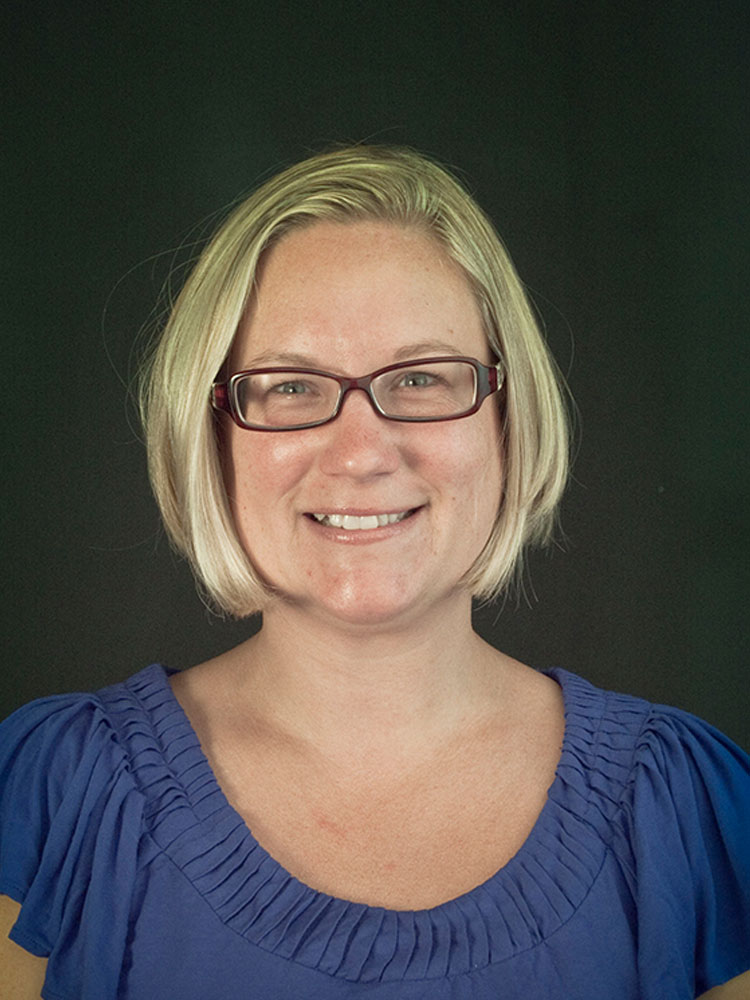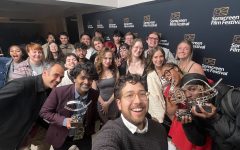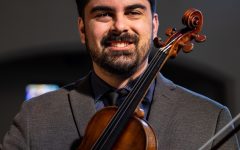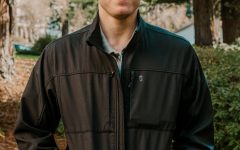#FacultyFriday: Meet Aimee Wyrick
June 15, 2018 2018-06-21 17:18#FacultyFriday: Meet Aimee Wyrick
 Professor Aimee Wyrick is one of PUC’s most popular faculty. She specializes in ecology, herpetology, and paleontology. She advises students studying biology, pre-dentistry and pre-dental hygiene. Professor Wyrick helps students connect what they learn in the classroom to the outdoors; students in her classes regularly participate in service-learning projects and/or field trips to local areas of interest, including working on invasive species removal and restoration projects with the LTNC, Napa Chapter CNPS, Bureau of Reclamation, Tuleyome Napa, and PUC. For the past 10 years, Professor Wyrick has been the Biology Club sponsor, planning fun and educational events and trips to Albion for one of PUC’s most popular clubs.
Professor Aimee Wyrick is one of PUC’s most popular faculty. She specializes in ecology, herpetology, and paleontology. She advises students studying biology, pre-dentistry and pre-dental hygiene. Professor Wyrick helps students connect what they learn in the classroom to the outdoors; students in her classes regularly participate in service-learning projects and/or field trips to local areas of interest, including working on invasive species removal and restoration projects with the LTNC, Napa Chapter CNPS, Bureau of Reclamation, Tuleyome Napa, and PUC. For the past 10 years, Professor Wyrick has been the Biology Club sponsor, planning fun and educational events and trips to Albion for one of PUC’s most popular clubs.
Name: Aimee Wyrick
Title: Associate Professor of Biology and Chair, Department of Biology
Email: awyrick@puc.edu
Faculty since: 2004
Classes taught: Biological Foundations III, Flowering Plants, Conservation Biology, Philosophy of Origins, Geology, Home Greenhouse Gardening, Organic Vegetable Gardening, Research in Biology/Environmental Studies
Education: B.S. in biology, from Pacific Union College in 1996; MSc. in biology with an emphasis in paleontology, from Loma Linda University in 1998; MSc. in organismal biology and ecology, from the University of Montana in 2004
What made you decide to be a teacher?
I don’t think it was a decision so much as it is who I am! As a kid, I would make tests and quizzes for myself to take just for fun. I’ve always been curious and love to learn new things. Sharing my knowledge and excitement about the natural world with students brings me great joy.
What are some of your hobbies?
Cooking, gardening, travel, anything outdoors, and trying new things.
What’s something people might be surprised to know about you?
I was first exposed to biology and PUC as a toddler. My dad was a TA for several classes and would bring me to his labs—while he taught the class, I hung out in a crib at the back of the room. Teaching biology at PUC is my destiny!
What’s your favorite thing about PUC?
Most faculty and staff live in Angwin and most students reside in the dormitories—the advantage is we can more easily establish and nurture relationships with each other. I love our location and the community but it’s more than “just” a beautiful place with cool people. The whole (PUC) is definitely greater than the sum of its parts (place + people).
What’s your favorite spot on campus?
I really enjoy sitting on the patio outside the Grind while enjoying a hot drink with my friends. For me, an almond milk latte elevates an already beautiful setting and gives me a chance to unwind for a moment.
What’s your favorite movie?
The Princess Bride (yes, really!).
What advice would you give to an incoming freshman?
Be willing (and able) to delay gratification. You will have to put in a lot of work and effort that won’t necessarily pay off for several years. Getting a good grade in a class is one thing but actually knowing and understanding what you’ve been taught is the long-game. Focus on that.
Professional activities:
Presentations
Pacific Union Conference Science Teacher’s In-service, Ontario, CA, January 2018
Title: “Teaching origins: The importance of accuracy, attitude, and honesty
Geoscience Research Institute Second Conference on Teaching Origins Conference, Colorado Springs, Colorado, August, 2009
Title: “Using surveys to start the conversation on science and origins.”
Annual meeting, Montana Chapter American Fisheries Society, January, 2001
Title: “Fish and frogs: Can they coexist?”
Conference on Biology and Conservation of the Spotted Frog (Rana luteiventris), March, 2000
Title: “Columbia spotted frogs in Montana: Status, threats, research priorities, and proposed University of Montana research program.”
REFEREED PUBLICATIONS
Pilliod, D.S., B.R. Hossack, P.F.Bahls, E.L. Bull, P.S. Corn, G. Hokit, B.A. Maxell, J.C. Munger, and A. Wyrick. 2010. Non-native salmonids affect amphibian occupancy at multiple spatial scales. Diversity and Distribution 16(6):959-974.
Grants
Communication Grant ($6000), GC Faith and Science Council, 2018
Funding for: development and installation of a creation trail on the PUC campus
Summer Sabbatical ($2349), Pacific Union College, 2015
Funding for: development of “solving real-world problems” for the ENVR 360L curriculum
Service-Learning Fellowship ($400), Pacific Union College, 2015
Funding for: development of a service-learning project for BIOL 325
Margaret Huse Faculty Research and Development Grant ($1200), Pacific Union College, 2012
Funding for: Field research on Columbia spotted frog (Rana luteiventris)
Herber Faculty Grant ($2000), Pacific Union College, 2011
Funding for: attendance at the Geoscience Research Institute Field Conference for SDA Church Administrators, Banff, Alberta Canada
Mini-Sabbatical ($500), Pacific Union College, 2010
Funding for: development of Biology and Environmental Studies Capstone course
Margaret Huse Faculty Research and Development Grant ($2000), Pacific Union College, 2009
Funding for: attendance and presentation at the Geoscience Research Institute Second Conference on Teaching Origins Conference, Colorado Springs, Colorado
Herber Faculty Grant ($2500), Pacific Union College, 2006
Funding for: attendance at the Geoscience Research Institute Field Conference for SDA Church Administrators, Colorado
USGS – Biological Research Division Amphibian Monitoring and Research Initiative ($15,000), 2000-2002
Funding for: “Predation and other pressures on the Columbia spotted frog (Rana luteiventris) in a high-elevation system, Absaroka-Beartooth Wilderness, Montana”
USFS – Region 1 SLIC ($3000), 2000-2002
Funding for: “Inventory and monitoring of all amphibians and reptiles in Region 1 Forests”
Research Joint Venture Agreement – Aldo Leopold Wilderness Research Institute (USDA Forest Service) ($3000), 1999
Funding for: Pilot study “Fish effects on the Columbia spotted frog (Rana luteiventris)”
Field Research Grant – Loma Linda University, Department of Natural Sciences ($3000), 1997-1998
Funding for: “Plant taphonomy of the Mono Lake drainage basin”






